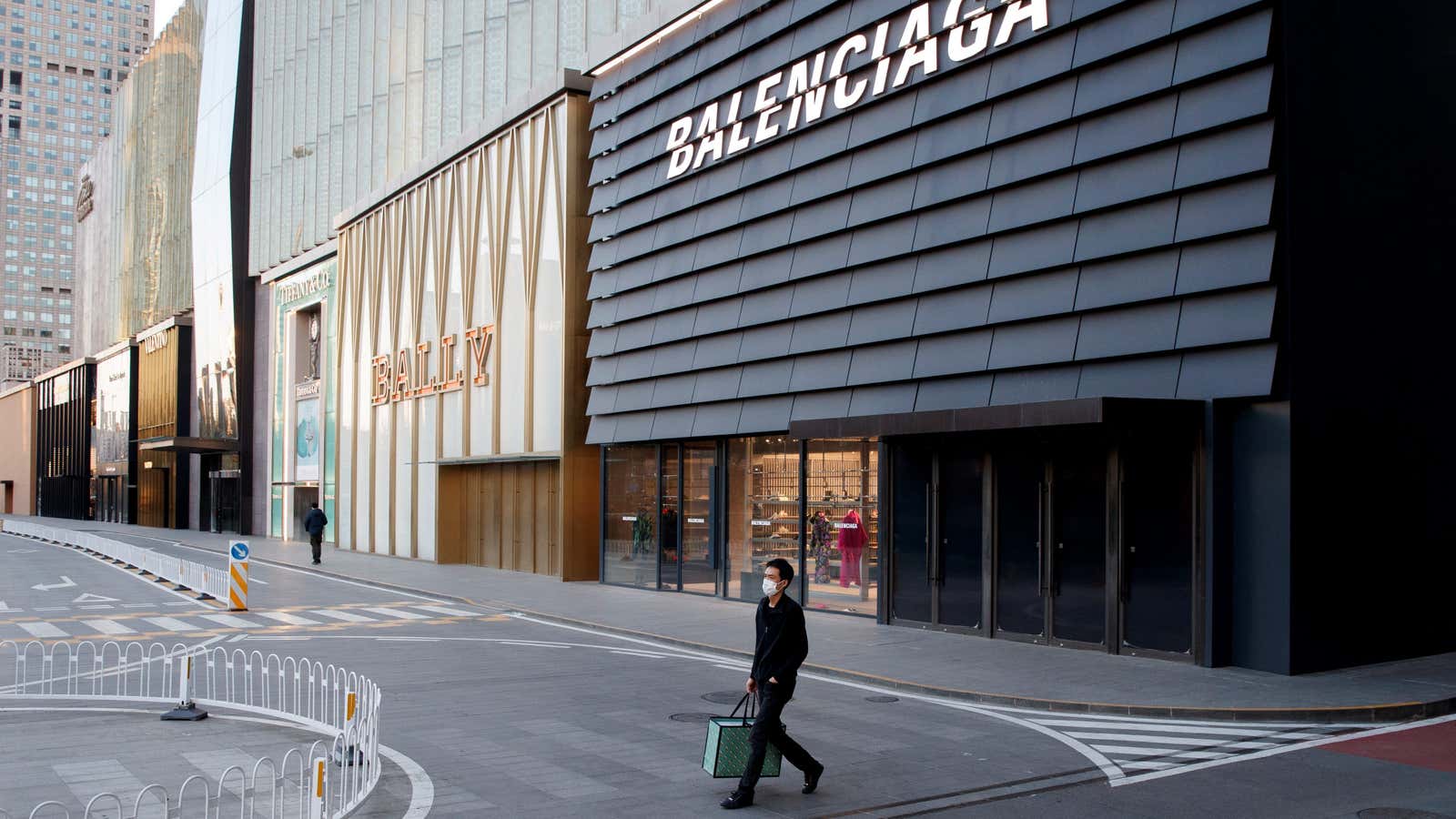Luxury companies including Burberry, Ralph Lauren, Coach, and Capri Holdings—which owns Michael Kors, Versace, and Jimmy Choo—have already warned of lost sales amounting to tens or hundreds of millions of dollars due to the spread of coronavirus.
Now a survey of top luxury executives estimates the total hit to the industry’s sales could reach as high as €40 billion ($43.4 billion), Vogue Business reports.
The survey of 28 CEOs and CFOs—conducted by Altagamma, an association of Italian luxury companies, in conjunction with Boston Consulting Group and investment firm Bernstein—estimated the industry could lose €30 billion to €40 billion in sales this year, for an estimated total sales of €309 billion in 2020. The consequence would be a roughly 15% drop in earnings for the industry, meaning a loss of about €10 billion.
The main concern is business in China, where sales are plummeting due to widespread store closures and shoppers hunkering down in their homes. The survey estimates as many as 10 million to 15 million products originally destined for China could go unsold, forcing companies to redirect those items to other parts of the world. Luxe outerwear company Moncler, for instance, said on a recent earnings call with investors and analysts that it had frozen shipments to Greater China and sent them instead to regions such as Europe.
But there’s also worry over a worldwide impact. Chinese tourists are big spenders on luxury goods and contribute to sales in cities from Tokyo to New York. Many have put off flying or face travel restrictions. In Paris, retailers have noticed a marked decline in shopping Chinese travelers.
Some categories, such as watches and handbags, could recoup much of their lost business once conditions return to normal. But companies selling lots of seasonal items, such as clothes, could lose sales permanently as the weather changes and companies need to clear room for a new season of products.
Luxury companies aren’t suffering alone. Adidas recently said its business in China was down 85% compared to the same time last year, and Under Armour announced the outbreak could cost it up to $60 million in sales. Sports-wear and mass-market companies also face the added wrinkle of relying on Chinese factories that produce the materials they use and to assemble the goods they sell.
The luxury industry is vulnerable to any slowdown in China, though, as Chinese shoppers, buying both inside and outside the country, account for about one third of global spending on luxury goods. But while business might not get back to normal before the start of 2021, the luxury executives surveyed were sanguine about their prospects long-term. Most expected to bounce back and reach their pre-virus sales targets next year.
